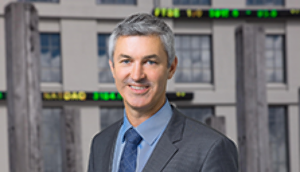Retail investors get passive strategies: Stevens
Advisers with client money in active funds may have more work to do during periods of sharemarket volatility than those whose clients pursue passive strategies, NZX head of funds management Hugh Stevens says.
Thursday, December 6th 2018, 5:59AM  3 Comments
3 Comments

Smartshares released data showing that, across the four key strategies for New Zealand investors, active managers underperformed in October. Stevens said the same looked to have been true of November, too.
He said a growing number of retail investors clearly understood passive investment strategies, as demonstrated by the growth of platforms Sharesies and InvestNow. They factored in cost as an important part of their investment plans, he said.
“Active managers are talking about how much cash they’re keeping in portfolios at the moment – that’s an expensive way to hold cash.”
Passive investors had got the message that their investments would follow market movements up and down, he said, and were prepared for market turbulence. By contrast, active investors might have higher expectations of their managers - and could be disappointed.
He pointed to international research that showed that through periods of volatility there were bigger outflows from active funds.
“Investors assume their managers will perform well in volatility because they’re paying for the service, for active managers to manage the crises. When that doesn’t happen they get upset and take their money out. Passive investors know it will go up and down and that’s what happens.”
Advisers would have a role as a psychological coach for clients, helping them stick to their plans through market wobbles, he said.
New Zealand is still lagging international trends with only 2.6% of open-ended fund assets in passive investments, compared to about 20% globally.
Stevens said many advisers had traditionally seen a role in stock selection but research indicated that their value for consumers would come from the choices they made about asset allocation.
| « FSC quadruples surplus as it regains strength | Mann on a mission to diversify financial advice » |
Special Offers
Comments from our readers
Simply put: if advisers are struggling to add value in client's portfolios, then passive is a realistic solution - whereby your clients should pay 3pbs (with the scope of this price falling to nil). It is then up to the adviser to figure out what they will charge the client on an on-going basis for...
An alternative is for advisers to construct meaningful portfolios that are relevant for clients (ie: comprise of relevant investments that meet bespoke risk & fee budgets), that are built via a defend-able process, and are monitored periodically. If this sounds like hard work - then this is probably the wrong industry for you.
Sign In to add your comment
| Printable version | Email to a friend |



